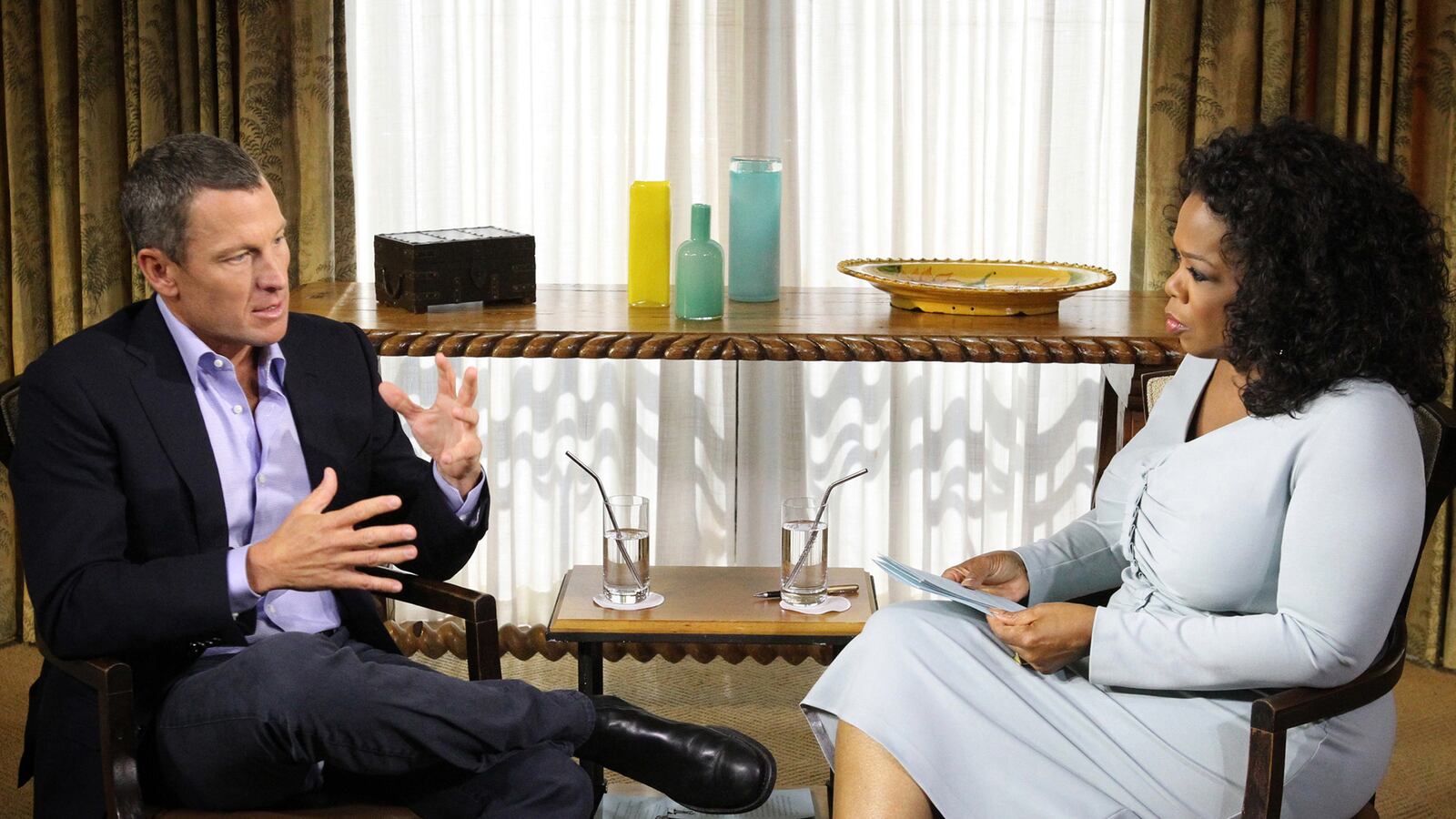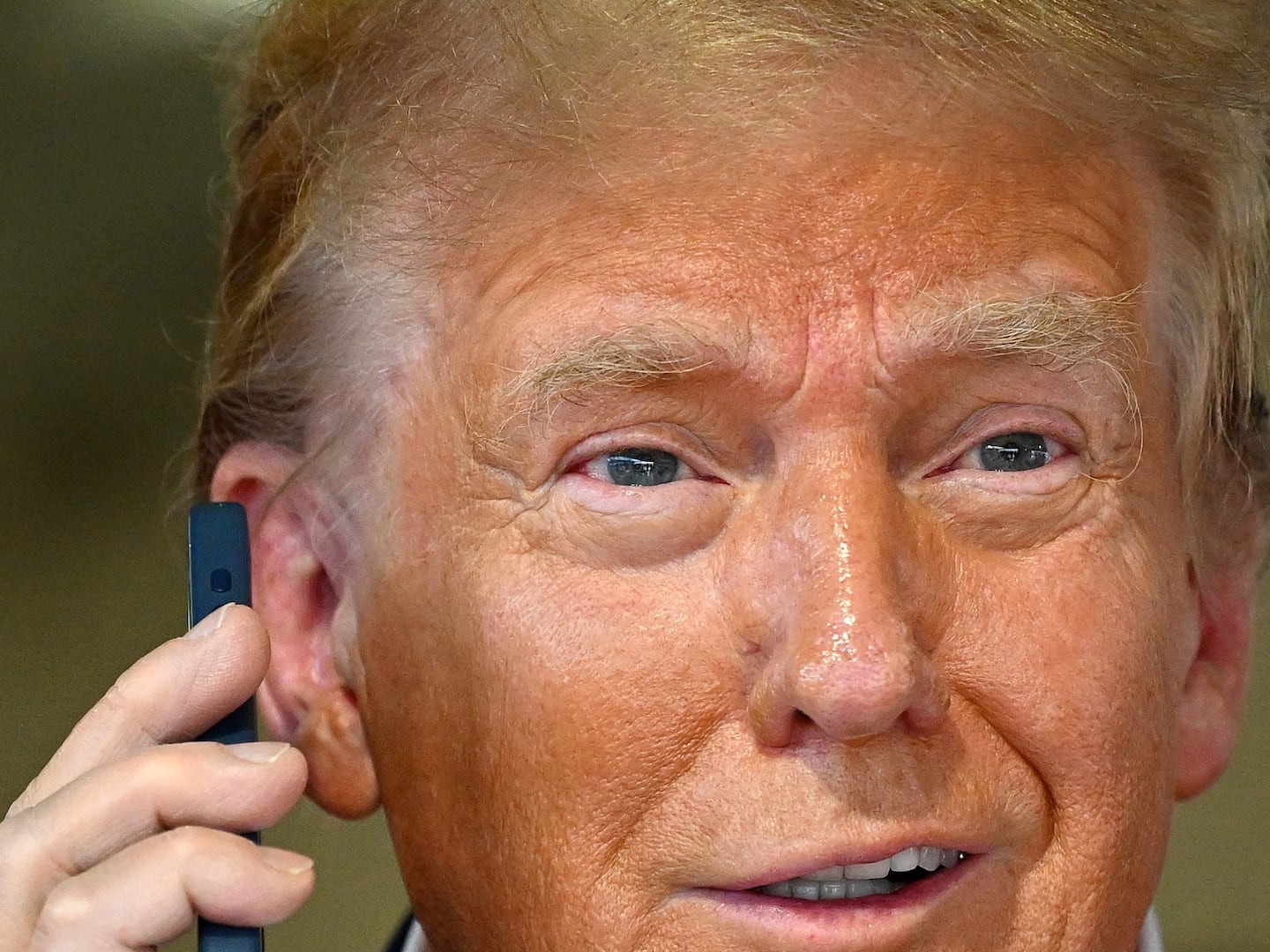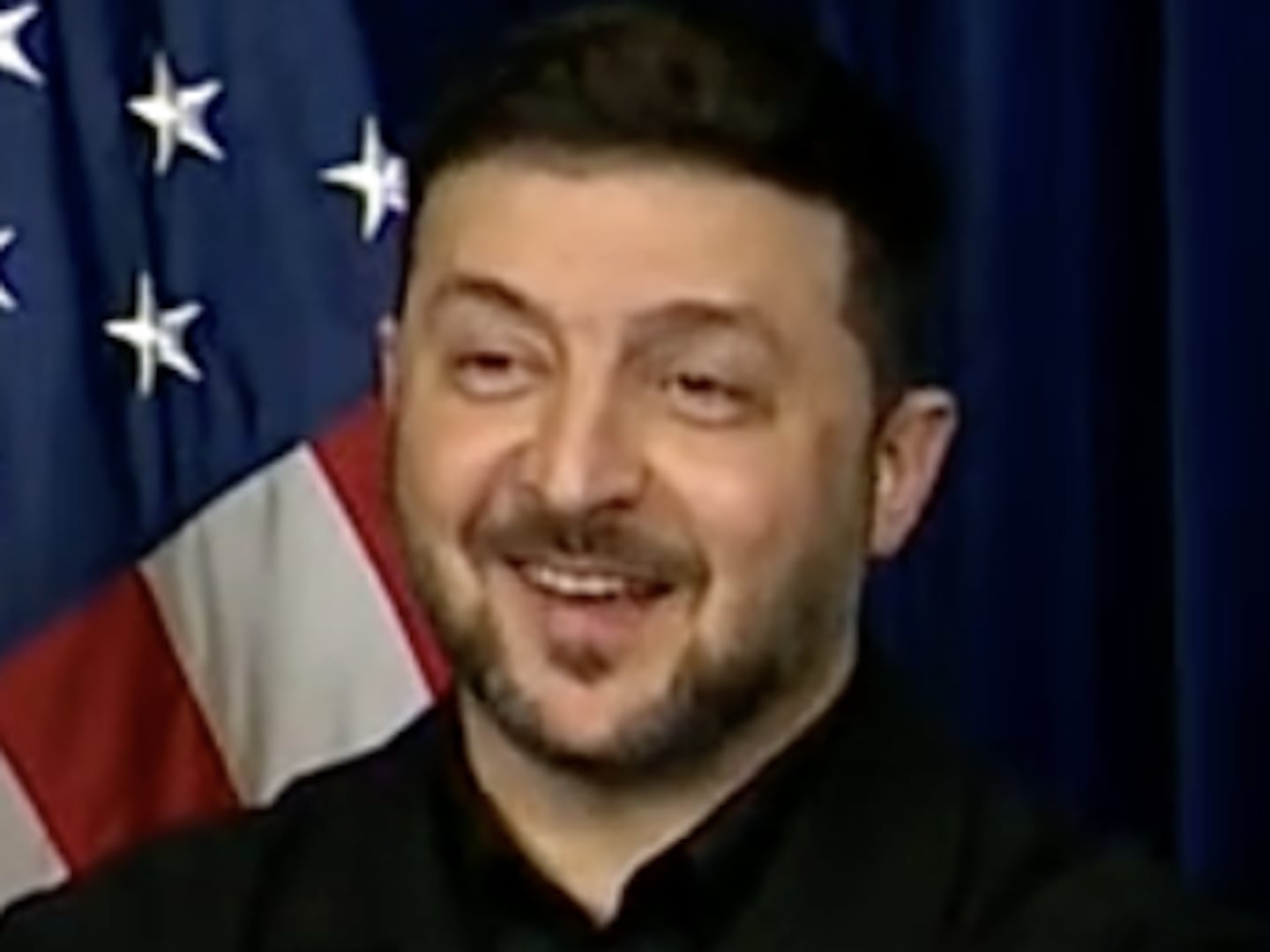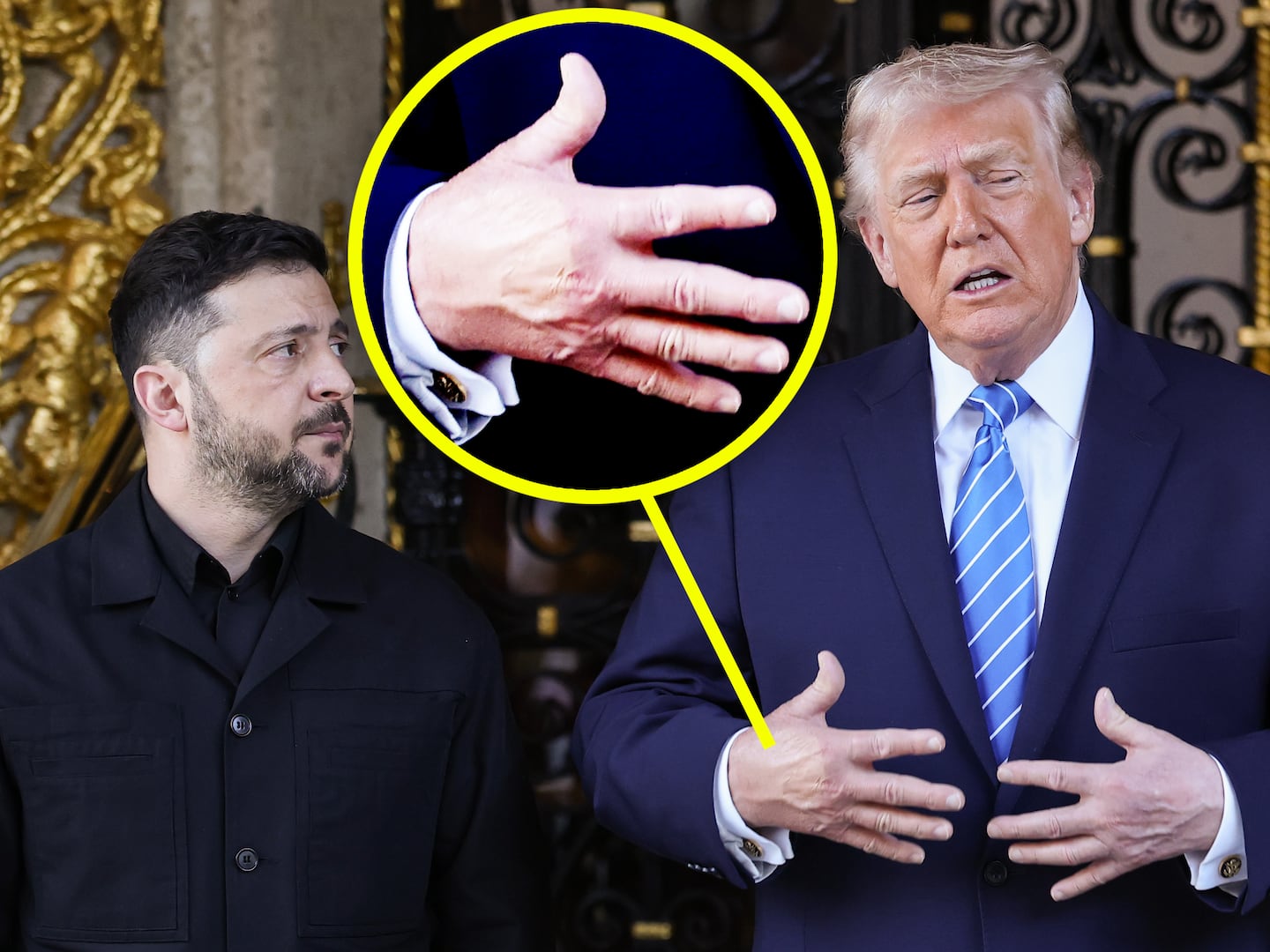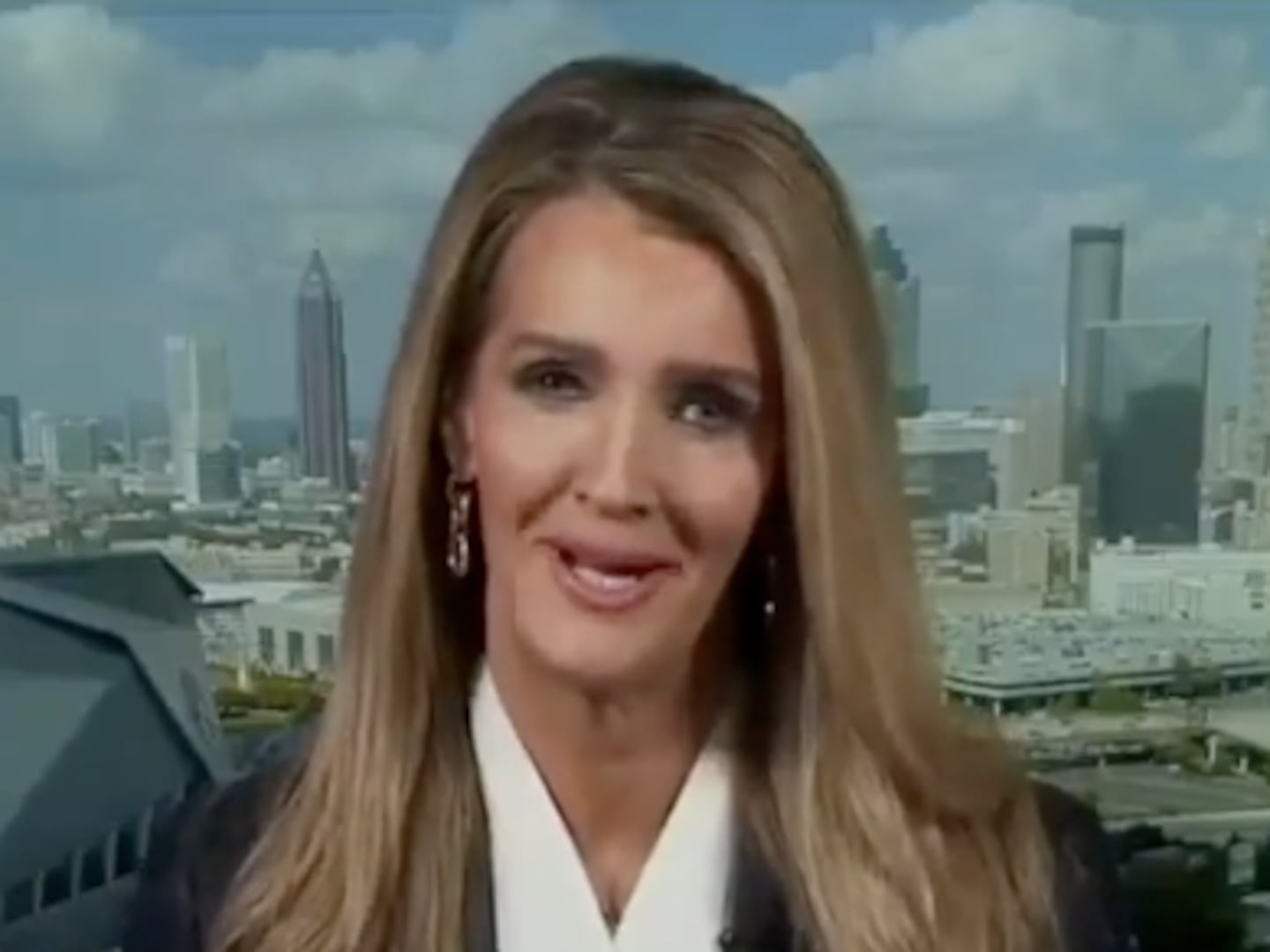“Do you feel disgraced?” asked Oprah Winfrey, plunging right into part two of her blockbuster interview with fallen hero Lance Armstrong, which aired Friday night on OWN. Oprah and Lance Armstrong: The Worldwide Exclusive’s second installment picked up right where the first left off. After dropping enough bombshells Thursday night to decimate the French Alps, Armstrong faced the Winfrey inquisition for more big confessions.
What did his sponsors say? Is he staging a comeback? How are his kids doing? Here are the biggest revelations from part two of Lance’s Dope-rah interview.

1. His kids defended him up until a few weeks ago.
Critics were shocked by the almost defiant lack of emotion Armstrong displayed in part one of his interview. So what did it take to finally make him to tear up? Talking about his son. Armstrong said that seeing his son defend him in the halls of his school played a crucial part in convincing him to finally come clean. “He never asked me,” Armstrong said as his eyes welled up. “He never said, ‘Dad is this true?’ He trust me.”
Armstrong also he revealed that he didn’t come clean to his older kids—Luke, 13; twins Isabelle and Grace, 11—until this past holiday season. He said that he was doping the whole time he was denying it to the public. “I’ve been ruthless about that,” he told them, “which is probably why you trusted me on that, which makes it sicker. I want you to know that it’s true.” After another pause for tears, he said he told Luke, “Don’t defend me anymore.” Luke’s response? “He just said look I love you. You’re my dad. This won’t change that.”
2. The fallout has cost him over $75 million.
How much has Armstrong’s fall from grace cost him? “I’ve lost all future income,“ he said. Yes, but that’s forward. What about that immediate sum in those days that all his sponsors cast him away? “I don’t like thinking about it, but that was a—I don’t know—$75 million day,” he said. “It’s gone, and probably never coming back.” If there’s not a .gif coming of Oprah’s symapthetic face when he dropped that $75 million number, then the internet has failed us all.
3. He thinks his punishment is too harsh.
After he was stripped of his Tour de France titles, Armstrong was issued a pretty unequivocal punishment. Essentially, he couldn’t compete again in any sporting event, ever, if it's officially sanctioned. Asked if he would want to compete again, he said, “The answer’s hell yes.” But he’s no fool: “I don’t expect it to happen.” He also said he doesn’t necessarily think that’s completely fair.
People ratted him out in return for a six month suspension, Armstrong reminded Winfrey. But “I got the death penalty,” he said. “Not that I’m not saying it’s not fair. But it’s different.”
4. It took losing Livestrong to make it all real.
What was the most humbling moment for Armstrong? It wasn’t when the rumors started. It wasn’t when the investigation launched, or when he was stripped of his Tour de France titles, or when his sponsors started dropping him. “I had this place in my mind that they would all leave,” he said. “The one place that I didn’t think would leave was the Foundation.” He says he was asked by the Livestrong Foundation to step aside in two separate phonecalls: the first to give up his top position, the second to sever ties altogether.
“None of my kids said, ‘Hey dad, you’re out,’” Armstrong said. “None of my friends were like, ‘Hey Lance, you’re out.’ The foundation was like my sixth child. Making that decision to step aside was big. It hurt like hell…That was the lowest.”
5. He has remorse, but hasn’t changed…yet.
“Everybody who gets caught is bummed out that they got caught,” Armstrong confesses. That said, he “absolutely” has real remorse: “I’m paying the price, but I deserve it. Has this whole ordeal caused a shift or change in him as a person? “I’d be lying if I said that it has,” he says.
Still, Winfrey seemed very concerned over whether he’s a better human being after all this, and Armstrong could reassure her that he is. “Without a doubt,” he said. Armstrong also said this isn’t first rodeo when it comes to becoming a better human being. “This happened twice in my life. When I was diagnosed I was a better human being. And I was a smarter human being after that. And then I lost that way. And here’s the second time. And it’s easy to say I feel different and I feel smarter and I’m a better human being. But I can’t lose my way again.”
6. He owes The New York Times an apology. Also, the world.
Armstrong said there’s a long list of people who owes apologies to—and the list is fairly obvious: Floyd Landis, Tyler Hamilton, etc. He added one more name to that list after being pressed by Winfrey: David Walsh, the sports writer who defined the pain in Armstrong’s neck for 13 years as he pursued the doping scandal that, after over a decade of denials, is now finally bringing him down.
In addition, he’d like to say sorry to the millions of us who sported Livestrong bracelets in good faith of the message and hero they stood for. “I say I understand your anger, your sense of betrayal,” he said. “You supported me forever through all of this, and you believed, and I lied to you. And I’m sorry. I will spend—I will spend—and I’m committed to spending as long as I have to make amends, knowing full well I wont get many back.”
7. His ex-wife knew about his doping, and forbade him from continuing.
Armstrong's ex-wife, Kristin played a pivotal part in convincing him to stop before his big comeback out of retirement. “She certainly knew, but maybe it was a need-to-know basis,” he said. When it came time to return to the race, she was the one person he asked for permission from, and she gave her blessing under one condition: that he never dope again. “I said you got a deal,” Armstrong recalled, “and I never would’ve betrayed that with her.”
8. The moral of the story is whatever Oprah says it is.
This isn't the lowest moment in Armstrong’s life. “You cannot compare this to a [cancer] diagnosis…that sets the bar.” But is there at least a moral to be learned from all this?
Armstrong thought it was all fairly obvious: Don’t cheat, don’t lie, don’t bully people. Enter the O to spell it all out more clearly. “What do I hope the moral to your story is?” she said. “I hope the moral to the story is what Kristin told you in 2009: The truth will set you free.”
Armstrong’s response: “Yeah.”

